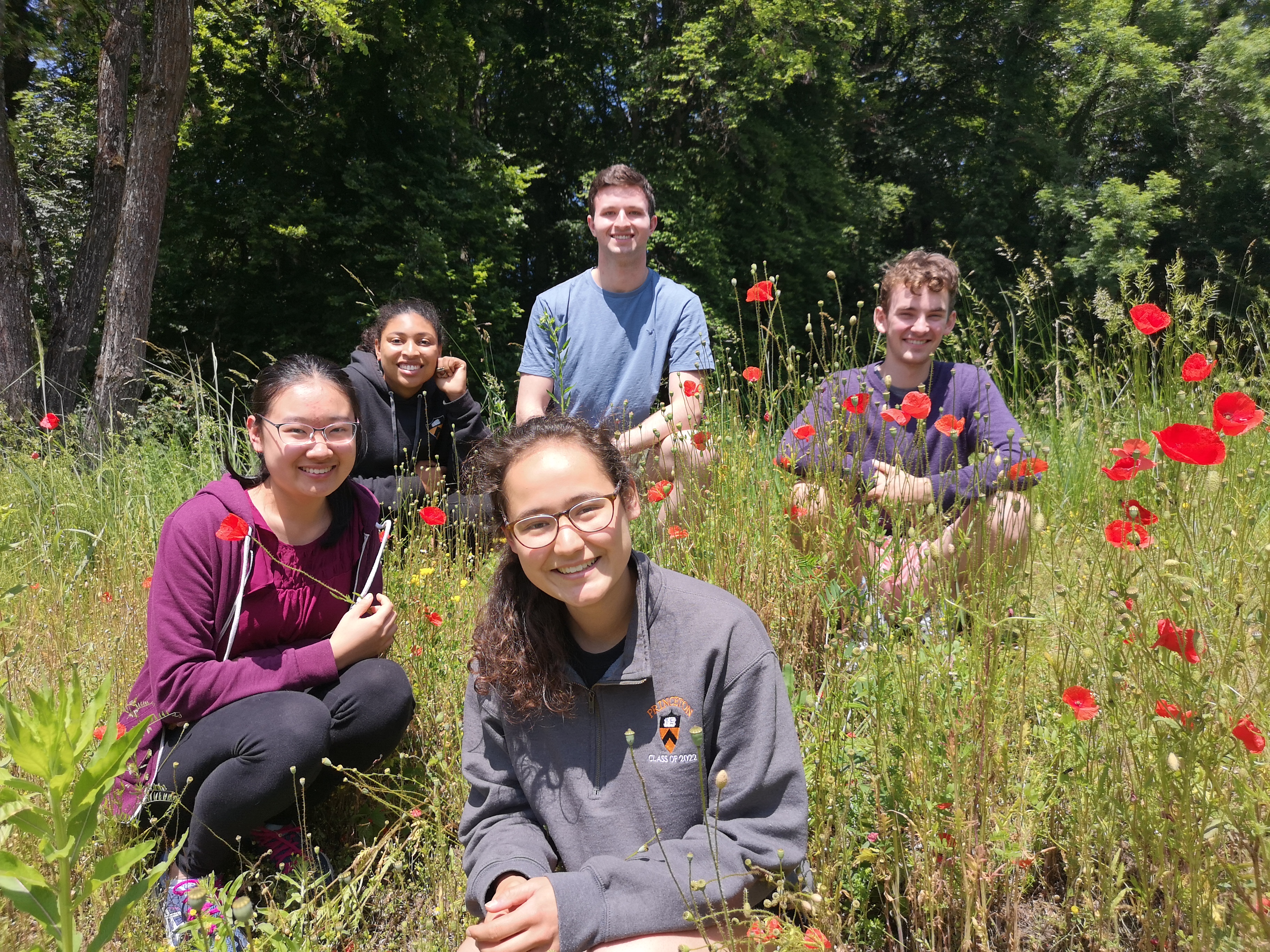
Introducing the summer interns
Konstanz program merges machine learning with collective behaviour for five Princeton undergraduate students
The Centre for the Advanced Study of Collective Behaviour welcomes its first group of internship students, thanks to a new program designed to connect the Centre with top analytically-trained talent from abroad.
Known as the Centre for the Advanced Study of Collective Behaviour International Summer Internship Program, it brings five bachelor’s students from Princeton University to Konstanz for eight weeks to gain hands-on experience solving real challenges in collective behaviour research. The students will be on the University of Konstanz campus until 2 August.
The 2019 student cohort come with backgrounds in a range of fields—including mathematics, physics, neuroscience, and computer science—that embody the Centre for the Advanced Study of Collective Behaviour’s interdisciplinary framework. They also bring with them top-level analytical and programming skills, as well as experience in the application of machine learning and computer vision techniques.
The program puts interns in touch with scientists across the multidisciplinary world of collective behaviour, and fosters collaborations with these scientists to develop creative, data-driven solutions to real technical hurdles in their research—from building models of animal movement to automatic classification of landscapes to extracting behaviour from raw video data.
While this is the first year that the Centre for the Advanced Study of Collective Behaviour is running the intern program, which is conducted in partnership with Princeton University’s International Internship Program, this is the third year that students from Princeton have travelled to Konstanz for experience in collective behaviour research.
For the previous two years, the program has been run together with the Max Planck Department of Collective Behaviour, led by Iain Couzin. The wide-ranging projects conducted by past students include using deep reinforcement learning based models to investigate the emergence of group cohesion, and building GPU accelerated disease transmission simulations to understand how individual animal movement can affect the spread of infection in groups.
The program has demonstrated results: In the 2018 cohort, intern Daniel Chae collaborated with PhD student Jake Graving to help build the software infrastructure for a deep learning based system to automatically extract animal posture information from videos of a wide range of species filmed in the lab and in the wild. Their work was just posted on bioArxiv and is currently in review at the journal eLife.
For the 2019 summer program, interns will collaborate with researchers to develop a project based on their own skills and interests. Interns choose from projects submitted by researchers from the Centre for the Advanced Study of Collective Behaviour, but can elect to work individually or in groups and are free to take the research in a direction that interests them. The goal of the Centre for the Advanced Study of Collective Behaviour International Summer Internship Program is to foster creative ideas for research, and a life-enriching experience for the students. After all, it is their summer vacation.
